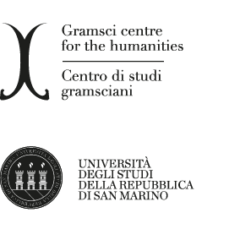Equipping all those who have the basic knowledge provided by the compulsory school with critical tools for the interpretation of reality represented by digital data. This is the aim pursued by the Scuola pop sui dati digitali, an internal project of the Scuola Critica del Digitale, organized and promoted by the Centro per la Riforma dello Stato (Crs).
The reversal of expectations
The Crs founded the Scuola Crica del Digitale in 2017, after noting the radical and sensational reversal of the expectations that have accompanied, since the explosion of the Internet at the beginning of the new century, the very rapid development of digital transformation.
«A transformation generally described by means of a positive rhetoric of digital innovation, presented as one of the pillars of the more general rhetoric of the conflict between old and new», explains Giulio De Petra, director of the Centro per la Riforma dello Stato, who adds: «But this narrative can no longer hide the contradictions and critical aspects that increasingly characterize the prevailing uses of digital technologies».
According to De Petra: «Initially, on the left, the themes of the digital were experienced uncritically, with the affirmation of a current of thought that we could call Liberation Technology». Also the web appeared at that time as: «The enabling tool for another possible world, capable of making practicable new ways of social cooperation and political democracy».
But, as the director of Crs points out: «The development of the digital transformation has produced the exact opposite, that is the realization of devices able to make possible the continuation and the exasperation of the worst characteristics of the current world. This is the latest transformation of capitalism into “immaterial” capitalism, whose economic rules are artificial conventions detached from any natural necessity».
That’s why the training purpose of the school: «It’s not addressed to the narrow circle of the experts, but to all those who in their work and in their life are forced, often unaware, to an intense use of digital technology, having therefore the need to equip themselves with adequate tools of critical awareness».
Promoting Digital Data Literacy
The Scuola Critica del Digitale is therefore a container of initiatives, such as the Scuola pop on digital data, whose cycle of lessons took place entirely in remote teaching between February and June 2021.
«Data affect us as consumers and producers», says De Petra, who continues: «The first intention of the Pop School was to move from raising awareness of the critical issues of the digital revolution, to more in-depth training of a non-expert audience».
The individual lessons were held with a maieutic approach: the contents were proposed through a continuous dialogue between teacher and participant, so as to allow the former to play the role of a midwife of concepts that the latter generated independently, assisted by a continuous proposal of examples according to a style of problem posing and solving.
«We would have preferred that all the courses were held in presence because the interaction would have been better»but, nevertheless, «the participants were able to carry out exercises on some of the proposed problems. For example, the way in which artificial intelligence can interpret data in a distorted way, or the setting of the algorithm to the male of the Google automatic translator».
There was also a time dedicated to the comparison of pandemic data in order to understand the modeling processes: «The first two lessons, in particular, proposed as an object of in-depth investigation the table on the progress of the pandemic provided daily by the civil protection. Participants, for example, were offered different alternatives for interpreting the data provided, and their choices were then commented on collectively with the aim of highlighting ambiguities and limitations of the tabular modelling used».
The participants, among whom many operators of different associations, have registered for free, as well as the teachers involved: Carlo Batini, Federico Cabitza, Paolo Cherubini, Patrizia Luongo, Teresa Numerico, Giorgio Resta and Gaetano Santucci.
Below are links to recordings of the School pop lectures on digital data from the Center for State Reform.
What is digital data and what is it for:
Data models are our glasses on the world:
Using semantic graphs the case of the genius friend:
When data becomes a dirty, opaque window on the world:
Wealth and fallacy of visualizations:
The value and disvalue of data:
Data, machine learning, and artificial intelligence:
Ultra empiricism and the capture of appearance:
The hows and whys of polluted information:
The approximation and visualization of statistical data:
The ownership of data:
Final pop school lesson on digital data:

